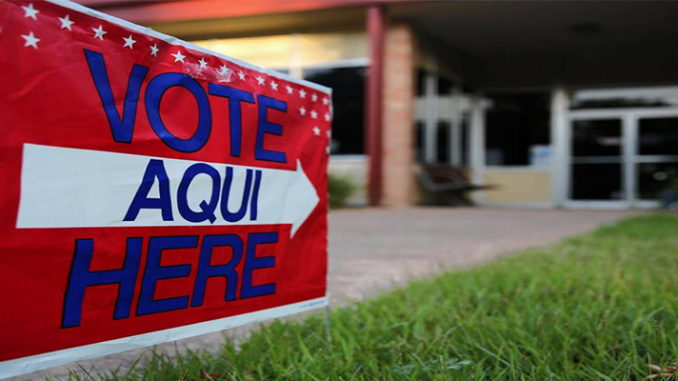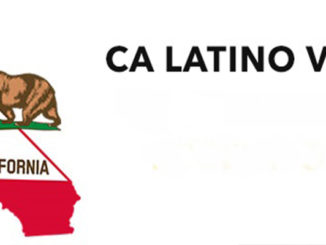
by Alex Gonzalez
The new Polls from Florida show Mitt Romney with a slight lead in the Presidential race against Obama in more than a year. Nationally, polls indicate that President Obama is crushing his GOP challenger by more than 30 percentage points among Latinos. However, in Florida, the story is much different with Romney either closing the gap or even leading by two points. This is good news at some extent because a defeat for Romney in Florida will be more detrimental for Cuban-Americans than any other group in the nation. If Romney loses Florida, it will suggest that the Republican National Committee (RNC) can no longer feel confident in putting all of its Hispanic resources in Florida if the Cuban-American (Hispanics) community while not paying attention to other larger Hispanic groups in the west coast, and Texas, with more potential Electoral Votes. As a result, this outcome in Florida can have serious implications on how the Republican National Committee shifts its attention to and spends its resources to garner Electoral Votes for Hispanics/Latinos.
Traditionally, the idea has been that if you needed a Republican Hispanic, the RNC, and even Romney campaign, would look to Florida where the old pre-Marielito Cuban émigré class of the 1960s readily supply a Republican Hispanic to be a spoke person or GOP operative. But this arrangement will no longer be possible soon since the Cuban base is exponentially shrinking and their Republican old class of pre-Marielitos “super voters” is steadily in decline due to US-born generations of Cuban-Americas who find very little in common with the old cadre of pre-Marielitos Cuban emigrants.
 For example, in a new Tampa Bay Times/ a statewide new poll shows that support among Hispanics for President Barack Obama has now dropped to 44 percent. Meanwhile, support among Hispanics for Mitt Romney has climbed from 43 to 46 percent.
For example, in a new Tampa Bay Times/ a statewide new poll shows that support among Hispanics for President Barack Obama has now dropped to 44 percent. Meanwhile, support among Hispanics for Mitt Romney has climbed from 43 to 46 percent.
But a another poll in the WSJ Poll from the same day by Florida International University/Miami Herald/El Nuevo Herald poll shows that
Mitt Romney is just seven points behind the president among Hispanics. “Mitt Romney is closing the gap on President Barack Obama among likely Hispanic Florida voters, a majority of whom say they’re not better off than they were four years ago,” reports the Miami Herald. “Obama is ahead of Romney 51-44 percent among Hispanics, a relatively narrow lead that could spell trouble for Democratic…. The Herald notes that Mr. Romney is doing especially well among Cuban voters, who comprise between 40% and 50% of the Hispanic vote in the state and overwhelmingly lean Republican.
 As the Miami Herald/University of Miami poll shows, an overwhelming support for the Republican candidate comes from Cubans; and this is nothing new in Florida. Though, there may be a discrepancy about the polls, the most significant factor in both polls show that the Cubans in Florida maybe losing the grip and the GOP-Cuban monopoly they have held on for decades as the Republican Hispanic vote.
As the Miami Herald/University of Miami poll shows, an overwhelming support for the Republican candidate comes from Cubans; and this is nothing new in Florida. Though, there may be a discrepancy about the polls, the most significant factor in both polls show that the Cubans in Florida maybe losing the grip and the GOP-Cuban monopoly they have held on for decades as the Republican Hispanic vote.
Normally, in the past, if you needed to show that the GOP has Hispanic Republican “Generals” in the Party, you would go to Florida and show-off Cuban-Americans and put them on national networks since foreign-born in Florida traditional vote Republican, especially among older pre-Marielitos Cubans who fled the communist Castro regime in Cuba in the 9160s. Hence, part of Republican lure for Cuban-Americans has always been a mandatory anti-Castro speech to get the Cuban vote out.
 Most conservative pundits make the argument that ideological issues such as taxes is what turns groups from one ideology to another one– a conservative or liberal approaches. However, any political scientists or historian would tell you that for Diaspora groups in the U.S. some issues are personal, and thus, for members of those groups, everything that does not address their grievances is empty rhetoric, as it is the case for the old cadre of Cuban who make the Cuba Embargo and the Travel Ban part of the demands to Republicans en exchange for votes. Thus, for Republicans in the state and RNC, to keep Cubans within the base, the RNC had to develop policies and direct resources, and advised Republican leaders, as it happened with Paul Ryan who now supports the Embargo, around those issues as long as Cubans deliver votes to get Republican elected to Congress and the White House.
Most conservative pundits make the argument that ideological issues such as taxes is what turns groups from one ideology to another one– a conservative or liberal approaches. However, any political scientists or historian would tell you that for Diaspora groups in the U.S. some issues are personal, and thus, for members of those groups, everything that does not address their grievances is empty rhetoric, as it is the case for the old cadre of Cuban who make the Cuba Embargo and the Travel Ban part of the demands to Republicans en exchange for votes. Thus, for Republicans in the state and RNC, to keep Cubans within the base, the RNC had to develop policies and direct resources, and advised Republican leaders, as it happened with Paul Ryan who now supports the Embargo, around those issues as long as Cubans deliver votes to get Republican elected to Congress and the White House.
However, for the last few elections, Cubans have been having problems in solidifying the Latino vote in the Florida due to a new generation of US-born Cubans. For example, even in 2008, 55 percent of Cuban voted for Obama. Moreover, younger Cuban-American voters shift away from the GOP and toward an independent outlook. Early 30s and of Cuban descent, represent an ideological shift that is altering Florida’s political landscape. A couple of generations removed from the exile experience of the 1960s, which created lockstep allegiance to the strongly anti-Communist GOP, younger Cubans are developing a more independent outlook that focus on issues like ending the war in Afghanistan, education and entitlements reforms.
Furthermore, Florida’s 2008 election, in which Obama’s victory with less than 3 percent of the vote proved that no advantage or weakness among 1.2 million Cuban-American residents. Thus, the only reason why the Cuban vote is important is because the state is evenly split. But Obama captured 35 percent of the Cuban-American vote four years ago. McCain took 66 percent of the vote from Cubans ages 50 to 64 and 79 percent from those 65 to 74. Consequently, Cubans in Florida are going through the aging process in which the remaining solid Republican is only the a harsh anti-Castro class that votes Republican because they want the Embargo and Travel Ban on American citizens and businesses left untouched. Thus, for the RNC, the plan has been that as longs as Cubans come out vote Republican, the GOP would protect that base, even drawing districts to protect the majority Cuban vote in the state.
And there is nothing wrong with this trade-off between Diaspora groups and any Political Parties; that is the way politics works. For example, last year, the Republican Legislature in Tallahassee approved a redistricting plan that would offer safer and stronger districts for Miami’s three Cuban-American Republican lawmakers, U.S. Reps. Mario Diaz-Balart, Ileana Ros-Lehtinen and David Rivera. According to the Miami Herald, in the district represented by Ileana Ros-Lehtinen, “61 percent of the newcomers registered as no party affiliation; 26 percent registered as Democrat; and, Republican registration dropped 3 percent.” So it is in the best interest of Republican Party in Florida to keep Cuban-majority districts by drawing lines where they can split the new non-Cuban independent registered voters; thus, in this political arrangement “Old” Cubans voters will continue to vote Republican in south Florida because they trade-off votes with the Republican Party to have their districts “safe” for Tallahassee and for Congress. The new district gave Cubans Republican Diaz-Balar a margin of 24,000 Republican registered voters. It is legal, if you can get away with it, and not considered racist because that is how the game of politics is played.
Therefore, in Florida, it used to be enough for Republican politicians to sweep in to Miami, sip Cuban coffee at Versailles restaurant and hammer on Fidel Castro to seal the Cuban vote that makes up about 70 percent of the Republican electorate in Miami-Dade. But the younger generation of Cubans is less motivated by those politics, having assimilated into mainstream U.S. culture. Additionally, more recent Cuban arrivals tend to be less against the trade embargo and more in favor of increased travel with Cuba.
 Bettina Inclan ( from Florida), director of Hispanic outreach for the Republican National Committee, and Sen. Marco Rubio, agree that “While the shift may not be dramatic — Cuban-American members of Congress from South Florida have withstood Democratic challenges in recent elections — it is perceptible and expected to widen over the next decade as ’60s exiles die off, forcing Republicans to expand their platform. “
Bettina Inclan ( from Florida), director of Hispanic outreach for the Republican National Committee, and Sen. Marco Rubio, agree that “While the shift may not be dramatic — Cuban-American members of Congress from South Florida have withstood Democratic challenges in recent elections — it is perceptible and expected to widen over the next decade as ’60s exiles die off, forcing Republicans to expand their platform. “
And, it is impracticable not to look at the registration numbers. According to the Pew Hispanic, As recently as 2006, more Hispanics in Florida were registered as Republicans (37%) than as Democrats (33%). By 2008, the balance tipped over to the Democrats. This year that trend has accelerated, with the gap between Hispanics who are registered as Democrats (38%) and those registered as Republicans (30%) wider now than in 2008 or 2010.
Similarly , in a recent study, researcher Benjamin G. Bishin1 and Casey A. Klofstad from the University of California named The Political Incorporation of Cuban Americans: Why Won’t Little Havana Turn Blue, in which they argued that Cuban Americans are distinctive among Latinos in their staunch support for the Republican Party. Cuban Americans routinely vote for Republican presidential candidates at rates exceeding 65 percent, turn out to vote at very high rates compared to other Latinos, and are disproportionately concentrated in Florida.
Bishin and Klofstad analyzed Census, exit polling and other data in Florida – home to nearly 70 percent of all Cuban Americans – over a 20-year period and found that the factors affecting Cuban Americans’ attitudes and voting behavior. Among their findings:
- Post-Mariel immigrants, who are more progressive on U.S. foreign policy toward Cuba than those who fled immediately following Fidel Castro’s revolution in 1959, accounted for slightly more than half of foreign-born Cubans in South Florida in the 2008 election; however, 78.6 percent of the Cuban American electorate consisted of pre-Mariel immigrants.
- Support for the GOP among pre-Mariel immigrants stems from the party’s strong anti-communist stand and a perception that the Democratic Party “has repeatedly bungled U.S. Cuba policy
- Post-Mariel immigrants were less well off economically in Cuba, are more likely to have close ties to family in Cuba,
- Although the children and grandchildren of the original exiles hold increasingly progressive views on trade with and travel to Cuba, less antipathy toward the Castro regime, and decreased identification with the Republican Party,
These results suggest that several trends will affect Cuban Americans’ behavior in the future,” Bishin and Klofstad wrote. “Continued growth in the native-born Cuban American population seems likely to diminish support for the embargo. Consequently, their ties to contemporary Cuba from the post-Marielitos are much stronger, and they tend to hold more moderate political preferences, especially on questions of U.S. foreign policy toward Cuba. Post-Mariel immigrants, in contrast, were socialized in Revolutionary Cuba and tend to have had little experience with Batista’s Cuba. As a result, members of the second and third generations are increasingly entering the community and electorate. Conventional wisdom suggests that having not experienced communist Cuba, these native-born voters may not feel the passion for the issues that relate to it.
The Benjamin G. Bishin1 and Casey A. Klofstad and voting patter of the last two elections as well as the new Polls by the Tampa-bay and Miami University show that Cuban Republicans now can only hold on to only 62% of vote made up mainly of old Cuban-born pre-Marielitos who still make the Embargo and Travel Ban part of their core Republican identity. Thus, for Republicans, the balance of power in Florida, which was based on the 13 percent of the state registered voters made up Hispanic Voter–of which now only 40% are of Cubans–is slowly shirking to levels that won’t be enough to offset the vote among Puerto Ricans and other Hispanics groups that make up the total Hispanic in the state.
The RNC spends a lot of political muscle to keep to Cubans in Florida vetting Republican on issue such the Embargo—even Paul Ryan, who used to opposed the Embargo, now has been “educated” on this issue after traveling to Florida—-when many conservative and Republican outside Florida argue that it may be time to ease Embargo while disregarding to issues important to other Hispanic groups.
The RNC has traded-off support for such policies as favor for and to help with Public Relations image that Republican does engage in outreach to the Hispanic community. Typical Hispanic representation meant Cuban Republicans going to Univision and Telemundo to show that the GOP does engage in outreach. And this in exchange for support for the policies promoted by old pre-Marielito class of Cubans. In fact, Cubans were the only Hispanic group in the state who supported Mitt Romney in the primaries over Newt Gingrich and Rick Perry who had a message directed more to Mexican-Americans in the Southwest on issues like education and immigration.
 But, if Cubans, again, cannot deliver the state of Florida Electoral Delegates with their “super voters”, the RNC will have to look for other Hispanic groups with more possibility to deliver electoral votes. Florida was the only state where the RNC spent money trying to get Latinos to register to vote. And Republican Mexican-Americans are not supposed to talk about this Hispanic PR representation by Cubans because it crates division among the Hispanic Republican groups. But in this hierarchical arrangement, traditionally, Mexican-America republican groups must take a surrogate role at the national level, and even in Congress when Cuban-American in the House and the Senate still do all the Hispanic PR for the RNC, especially on foreign policy.
But, if Cubans, again, cannot deliver the state of Florida Electoral Delegates with their “super voters”, the RNC will have to look for other Hispanic groups with more possibility to deliver electoral votes. Florida was the only state where the RNC spent money trying to get Latinos to register to vote. And Republican Mexican-Americans are not supposed to talk about this Hispanic PR representation by Cubans because it crates division among the Hispanic Republican groups. But in this hierarchical arrangement, traditionally, Mexican-America republican groups must take a surrogate role at the national level, and even in Congress when Cuban-American in the House and the Senate still do all the Hispanic PR for the RNC, especially on foreign policy.
And is not that there aren’t’ any Hispanic Republicans in Texas, New Mexico, or even in California that can do the PR message for Hispanics; it’s just that Cubans have always received all of the attention to represent the Hispanic bloc of voters nationally, due to the harsh Castro rhetoric and the Embargo while disregarding the issues important to Mexican-Americana. But those states have more conservative voter than the 65% of Cuban voters who keep voting Republican in Florida. But, even if the Republicans establishment in Florida keeps stretching the districts to protect the 3 Republican Cubans in the Miami-Dade area to bring in more Republican voters and kick out Democrat voters, it would be very difficult for Cuban to continue depending on the old pre-Marielito “super voters” who are “dying off” but only focus on the Embargo.
Within the Republican Party, Cubans have held their leadership position in the hierarchical arrangement of the Hispanic groups that needed to compete for attention from the RNC. But this traditional arrangement maybe finally coming to an end since Cuban won’t be able to be significantly large bloc of voters to make the RNC spend money and resources in the state while avoiding the issues important to other Hispanic larger groups who may offered more Electra Votes. For example, the RNC may see it more feasible to help states with large Electoral Votes like Texas to stay red, help California retake some of it Republican streak; or New Mexico, with its large 4th and 5th Hispanic population. All of them with a large Hispanic population.
So the stakes are high for Cuban Republicans who have long claimed to embody the meaning of Hispanic Republican through a series of trade-offs that policy-favor for old cadre of Cuban émigrés that still control the US-Cuba Relations. If they cannot deliver the votes in their state, their power will become diluted or even replaced by other Latinos groups growing in the Southwest. And that could change the GOP power concentration.
Alex Gonzalez is a political Analyst and Political Director for Latinos Ready To Vote. Comments to [email protected] or @AlexGonzTXCA



